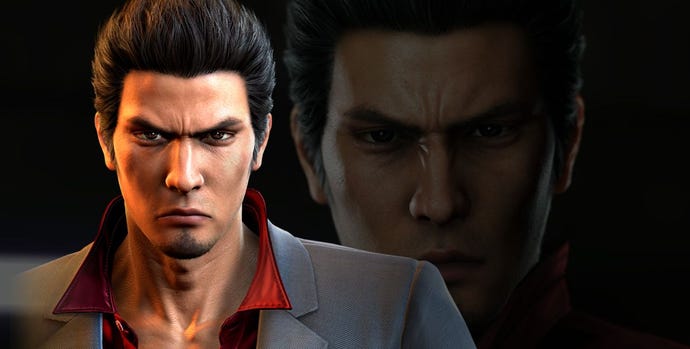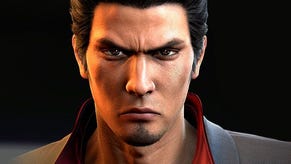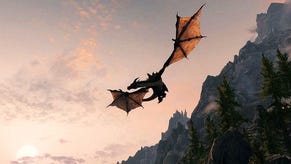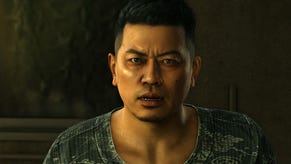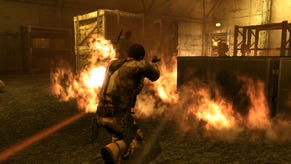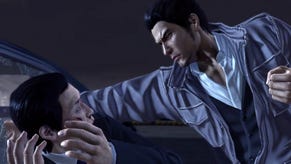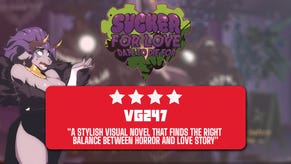Yakuza 6: The Song of Life review - a successful series finale that embraces its quirks
The story of Kazuma Kiryu is over.
It has taken six main releases, 13 years and thousands of battered and bruised streets punks, but our favourite yakuza finally has a completed tale to tell.
This final chapter in his adventures represents everything that has charmed us about a series that has grown up as we have. The juxtaposition between our stoic hero and his quirky environment is present and correct, as is the diversity of the extra curricular activities to undertake when you’re ready for a break from the main quests.
And, of course, the cast of characters is as exaggerated, as serious and as comical as ever. Not a flavour of emotion is left untouched.
Yakuza 6: The Song of Life offers a familiar concoction of narrative and gameplay, then, but it does so with a quality and self-assurance that does justice to its status as a finale.
This episode might revolve around us saying ‘goodbye’, but things begin with a fresh ‘hello’. A lengthy prologue acts to both set up Kaz’s initial goals and, for newcomers to the series, gain a brief introduction to the main characters and how they relate to each other.
"Where other franchises seek to shave off rough edges, Yakuza has opted to not only keep them but to celebrate them"
In all honesty, this sequence is clunky and poorly-paced – favouring simplistic information provision over interesting interactions or stylish presentation. However, given the series’ age and the hundreds of hours of backstory that have led up to this moment, it would be churlish to complain too strongly about a design team wanting all players of all experience levels to enjoy what follows.
Once things getting going, though, there’s a far more pronounced structure to the narrative than previous games offered. Returning characters play a part but gone are the usual time-intensive diversions revolving around legitimising them and their stories within Kaz’s world. This frees up the entire running time to allow us to focus on our protagonist and, at the risk of sounding trite and saccharine, linger over our final moments embodying him.
The singular focus also helps to bring out the finer details in our relationship with the world, the most interesting part of which is the familiar and returning Kamurocho area – a fictional locale that bares more than a passing resemblance to the Kabukicho red-light district of Tokyo’s Shinjuku region.
Kamurocho is a location stuffed full of drinking holes, restaurants, hostess bars, arcades complete with playable Sega classics (Puyo Puyo and Virtua Fighter 5, for instance) and more.
Not having to undergo the distraction of switching between characters, as we did in Yazuka 0, for instance, means we’re free to observe the inner-workings of Yakuza 6’s universe through the eyes of a single entity.
This makes Kamurocho a more intimate place than it has been in recent games, contextualising it as more of our home as a player than as a place to exploit in the name of progressing through the game. Yakuza 6 presents its world as a place to savour, rather one than to dominate.
A new engine helps enormously in drawing the most out of the setting, too. The creatively named Dragon Engine removes loading times that used to pop up whenever you moved from the street into a shop or bar, making the entire process of exploring the space around you far slicker and more inviting than it has ever been.
Additionally, more characters populate the streets. This gives a greater sense of Kamurocho bringing a place whose population density is verging on the unhealthy side of human living and is particularly noticeable when you’re wondering around its narrower sets of alleys and shopping zones.
If you’ve ever been to Tokyo then you’ll appreciate just how much closer the increased number of bodies on Yazuka 6’s streets brings it to the real thing. Add some Japanese whisky or fast food to your playing experience and you’ll have the smells and tastes to go along with the sights and sounds.
Not all of those bodies are friendly, however. Many are looking for a fight and a slightly tweaked combat system gives you plenty of excuse to make aggressors regret their decision to get involved with you.
Movements and actions are faster, making it easier to transition between blocks, dodges and attacks. This improves not only your ability to perform skilfully in combat, but it also heightens the visual appeal of such moments enormously. It would be a mistake to claim that Yakuza 6 features fights of beat-em-up quality, but things have moved beyond feeling as ridiculously outdated as they have in the past.
Despite these positives, however, this remains a series that is not for everyone. If you didn’t enjoy previous games then you won’t enjoy this, not just because of the lack of interest you’ll presumably have in the characters but because of the quirks that have forever doggedly remained part of this franchise.
Conversation sequences can be incredibly long, with cut-scenes flowing into one another for lengths of time that other games (and many of their players) would find unacceptable. It’s not an overstatement to say that Yazkuza 6 can feel more like an anime than a game at times.
Moving Kaz can feel old-fashioned, not least in how difficult it sometimes is to move through tighter spaces without getting caught up on the scenery or getting irritated with the camera position. Some of the mission tasks you’re asked to complete, too, are unashamedly shallow and boring in nature and, frankly, completely unbelievable when you try to frame them within Kaz’s yakuza nature.
Still, if you’ve come this far through the series then it’s entirely probably that these quirks exist as lovable foibles rather than game breaking issues. Certainly, as a fan, such things did nothing to distract me from the core story and how well it acts as a send-off to one of videogaming’s most divisive stars.
This is a game to be savoured slowly and enjoyed as much for its questionable qualities as its obvious ones. Where other franchises seek to shave off rough edges, Yakuza has opted to not only keep them but to celebrate them.
It’s that approach that has seen it garner such a strong following and it’s that approach that makes Yakuza 6 a successful finale to Kaz’s grand career.
Version Tested: PS4 version on PS4 Pro. Advance copy provided by the publisher.
